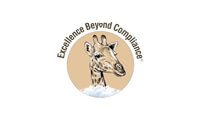Leadership Insights
Transforming Moments of Crisis into Lasting Opportunities
By Don Janssen, DVM
Leaders watch for opportunities to bring hope, and to change things for the better. But what do we do when, in a moment, troublesome circumstances intervene?
Nine years ago, I was unaware I was approaching such a moment. I had just gone to bed. The little finger of my right hand moved erratically. With effort, I stopped it. But it soon started up again. What was going on?
For the next year, I studied my symptoms in my own silent world. I shared it with no one. I felt okay, but I had undeniable symptoms of slow movement and overwhelming fatigue. And then there was that little finger, which had a mind of its own. When my wife noticed my lips and tongue quivering when drinking, it was time to seek a diagnosis and acknowledge what I suspected was true. That night nine years ago marked the beginning of my life with Parkinson’s disease.
We all experience critical moments, whether they are personal or professional, large or small. The current pandemic crisis is an extreme example, and a critical moment like none other. Any such moment, regardless of its size, challenges our expectations and disrupts our life plans. We have little control over them or when they happen; they just do. In the complex and dynamic workplace, leaders often face troubling moments that matter. But the best leaders overcome them. They use these moments to change the course of things for the better.
Is it possible to prepare ourselves for these unpredictable moments? And how do exceptional leaders transform these fiery moments into productive opportunities? Here are six tactics to consider:
- Relax. You’re not alone. Everyone encounters these moments. No one is immune. Being fearful at these unwelcome times is part of being human. Acknowledging that fear can help us move forward.
- Listen, think, and reflect. Such moments rarely demand immediate action, even in a crisis. Leaders look for what will happen next. They can’t do that if they jump to solve the problem of the moment. Take time to understand the issues and seek wisdom. Interpret the facts and put them into perspective. Be realistic, but not pessimistic.
- Search for what others don’t see. This is the pivotal point. Others won’t see what you can see, because they aren’t going through what you are. So, take advantage of your unique perspective and go deep below the surface. Be creative and find new directions and alternative possibilities. Look for changes needed in yourself and your sphere of influence.
- Lean in. Act with boldness. Be courageous, like a first responder. Take a direct path and go through, not around, difficulties. Others will naturally follow your lead. By engaging the circumstance, you’re less likely to be trapped by it later.
- Connect with others. Communicate early and often. Err on the side of transparency. Cultivate empathy by nurturing a concern for others. In a crisis, adjust your message as new information comes to light. Be the calming influence in the middle of the storm. Use what you learn to serve others’ needs first, not your own. You may discover a bigger purpose that isn’t even about you.
- Be grateful. Finding reasons for gratitude helps you to stay positive. Acknowledge the people and circumstances that helped you through the troublesome time. Those disruptive moments are far better teachers than the triumphant ones. View them as the valuable gifts they are.
I admit I’m not happy about having Parkinson’s disease, what it has taken away, and where it’s likely to lead. I’d welcome a cure. But I’m no victim. Experiencing such a disease keeps a lid on my ego. It’s a constant reminder that I have little control over the circumstances in my life. It has trained me to accept the hand I’ve been dealt, and to view the world from a more tolerant perspective. It’s brought me precious relationships I wouldn’t otherwise have had. Those are opportunities and abilities I’ve gained, not just a disability with loss.
Moments of adversity shaped the lives of our most extraordinary leaders. These experiences forged their character, transforming them into strong, humble leaders. As a result, they could speak with authority and wisdom instead of resigning themselves to fear and defeat. They saw these as opportunities to grow themselves, serve others, and spread hope. After all, isn’t that what leaders are called to do?
Have you changed in fundamental ways because of crucial moments that mattered in your life? How have they made you a better leader?
Don Janssen, DVM, is a veterinarian and retired corporate director of animal health for San Diego Zoo Wildlife Alliance. He is the author of Upside-Down Leadership: A Zoo Veterinarian's Journey to Becoming a Servant Leader. Find more information about the book and other articles by Don Janssen here.






















